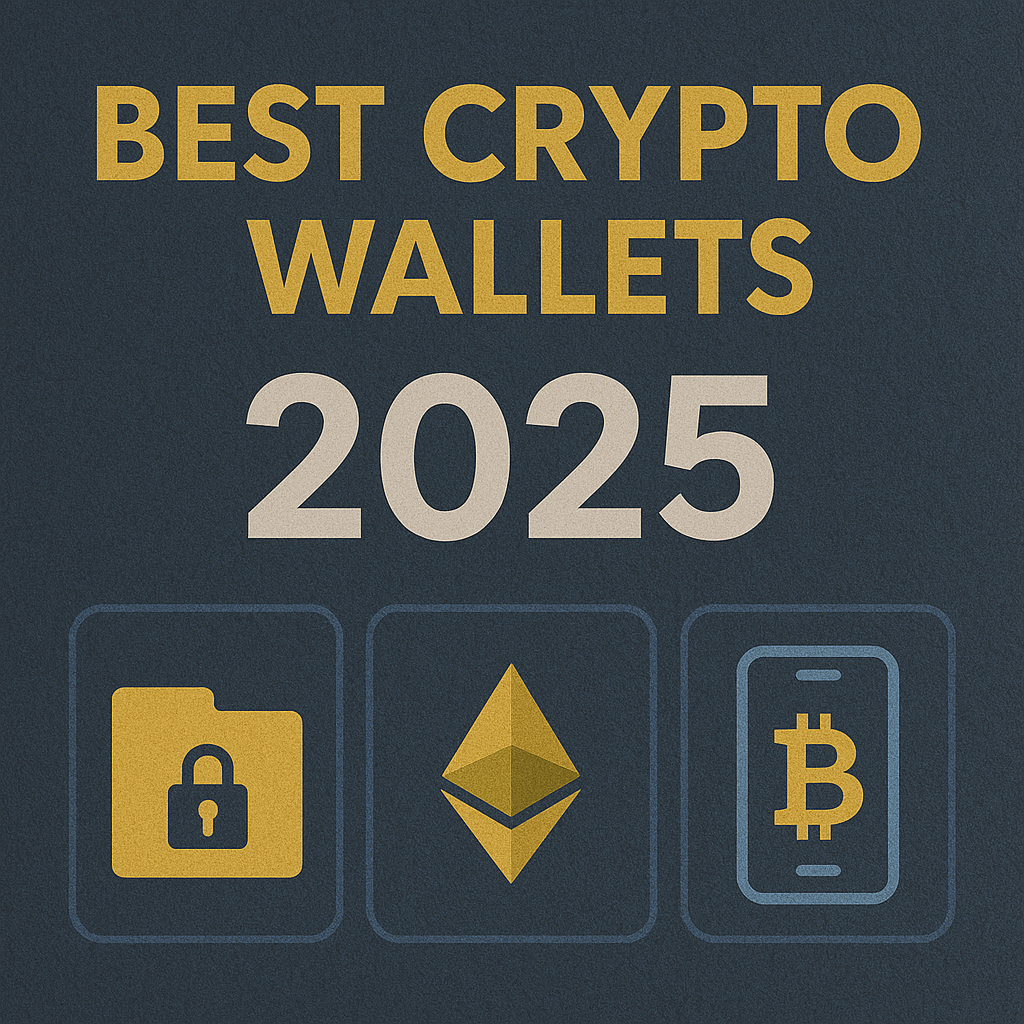Crypto Wallets in 2025: Which One Is Actually Safe? What Smart Investors Should Know

Whether you’re exploring options like a high yield savings account, browsing NerdWallet for financial tips, or running a calculator to ask, “how much house can I afford,” there’s a good chance you’re also wondering how to safely store your crypto. As digital assets become mainstream in 2025, the question of crypto wallet safety has never been more important.
Security breaches, rug pulls, and phishing scams are still prevalent, making your choice of wallet just as critical as which coin you buy. With multiple wallet types (hardware, software, mobile, paper, and custodial), and a variety of players entering the space, choosing the right one can be confusing.
In this guide, we’ll break down the safest crypto wallets in 2025, analyze the pros and cons of different types, and answer common wallet-related questions — all while keeping your investments protected.
Why Crypto Wallets Matter More Than Ever in 2025
As crypto adoption increases, wallets are no longer just about storage. They're your gateway to:
Trading and staking
Accessing NFTs and DeFi
Voting in DAO governance
Managing digital identity
With major integrations into banks, exchanges, and super apps, wallets are now multi-functional financial tools. And with rising concerns over scams and cyber attacks, security-first wallets are a must.
Types of Crypto Wallets in 2025
1. Hardware Wallets (Cold Storage)
These are physical devices that store your private keys offline, away from internet risks.
🔒 Top Hardware Wallets in 2025:
Ledger Nano X – Trusted, Bluetooth-enabled, supports 5,500+ assets.
Trezor Model T – Touchscreen, open-source, user-friendly.
GridPlus Lattice1 – Enhanced security for enterprise-level crypto management.
Best for: Long-term holders and high-net-worth investors.
Cons: Costly and not ideal for frequent traders.
2. Software Wallets (Hot Wallets)
Apps or browser extensions that connect to the internet, allowing quick access to crypto.
🔥 Top Software Wallets in 2025:
MetaMask 2.0 – Now supports Bitcoin, Solana, Layer 2s, and NFTs.
Trust Wallet – Integrated with Binance, supports staking.
Phantom Wallet – Originally Solana-exclusive, now supports EVM and Bitcoin.
Best for: DeFi users, NFT collectors, active traders.
Cons: Prone to phishing attacks and malware if security hygiene isn’t maintained.
3. Mobile Wallets
Mobile-first wallets optimized for easy use, QR scanning, and Web3 browsing.
📱 Popular Mobile Wallets:
Rainbow – Ethereum-focused, colorful UI.
Coinbase Wallet – Standalone wallet, ideal for new users.
Zengo – No private keys, uses biometric encryption.
Best for: Everyday use, small balances, quick payments.
4. Custodial Wallets
Your keys are held by a third party (like exchanges).
🏦 Examples:
Binance Wallet
Coinbase Exchange Wallet
Revolut Crypto Vault
Best for: Beginners or those using crypto as a payment method, not as an investment.
Cons: If the platform gets hacked or shuts down, your assets could be at risk.
People Also Ask: Crypto Wallet FAQs
What is the safest crypto wallet?
The safest wallets are hardware wallets like Ledger Nano X and Trezor Model T because they store your private keys offline. For maximum security, pair these with a metal backup seed phrase storage.
What is the best crypto to hold for 2025?
Top long-term projects include:
Bitcoin (BTC) – Most trusted digital asset.
Ethereum (ETH) – Dominates DeFi and NFTs.
Polygon (MATIC) – Scaling solution with enterprise adoption.
Chainlink (LINK) – Leading oracle network.
Emerging picks: Toncoin, Kaspa, Render (RNDR).
Which is the safest crypto wallet in India?
Ledger Nano X – Available on Amazon India or official sites.
CoinDCX Custodial Wallet – Great for beginners, registered with Indian authorities.
ZebPay Wallet – Simple UI, robust compliance.
Always buy hardware wallets directly from official websites to avoid tampering.
How to Choose the Right Crypto Wallet in 2025
Here’s what to evaluate:
Security: 2FA, biometric access, private key management
Compatibility: Which chains, tokens, and dApps are supported?
Ease of use: UI, onboarding, recovery process
Community: Active user base, support forums
Support: Responsive customer service, integration with exchanges
New Trends in Crypto Wallets (2025 Edition)
Biometric Wallets: Zengo and others offer face ID or fingerprint-only access.
MPC (Multi-Party Computation): No private key to lose — used by Coinbase and Fireblocks.
DePIN Wallets: Integrations with decentralized physical infrastructure (Helium, DIMO).
Integrated Tax Tools: Wallets are now syncing with platforms to track marginal tax rate and capital gains.
Travel Wallets: Seamless borderless payments (think crypto cards + wallet-in-one) — more useful than comparing Spirit vs Frontier.
High Yield Alternatives to Crypto Wallets?
If you're risk-averse or looking to park stablecoins, consider wallets that offer high yield savings account features:
Nexo Wallet – Earn up to 8% on stablecoins.
Crypto.com – Earn with flexible staking.
Binance Earn – Fixed-term and DeFi-based yields.
These yield-bearing wallets compete with traditional savings, and you don’t need to wonder "how much house can I afford" because your crypto might grow faster than your down payment!
Disclaimer
This article is for informational purposes only and should not be considered financial or investment advice. Always do your own research (DYOR) before making any financial decisions. Crypto assets are highly volatile and subject to regulatory risk.
Conclusion: Your Wallet Is Your Bank — Choose Wisely
As we navigate deeper into 2025, choosing the right crypto wallet is no longer optional — it’s essential. While there's no universal winner, hardware wallets like Ledger and MPC wallets like Zengo are setting new security standards.
Whether you're storing Bitcoin long term, trading DeFi tokens, or simply holding for a better future, make your wallet choice based on your goals, habits, and risk tolerance.
Because in crypto, your wallet isn’t just a tool — it's your digital bank, your vault, and your ID.